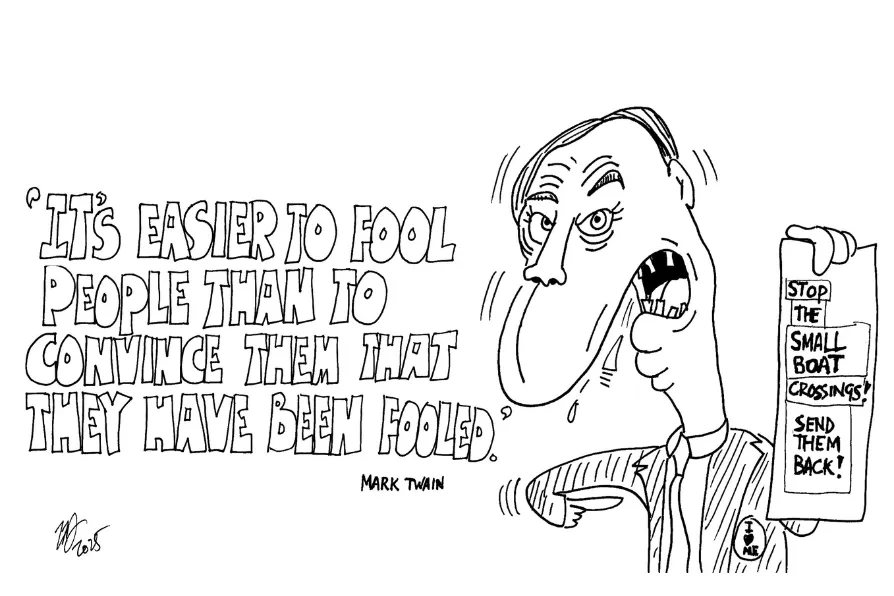LUKE FLETCHER outlines Plaid Cymru bold plans for wide-ranging policy consultations with trade unions in Wales
Labour councillor PAUL DONOVAN wonders why the right-wing party gets so much more media attention than it seems to merit

 Cartoon: JAB
Cartoon: JAB
THE advance of Reform UK has been in no small part due to its promotion in the British media.
A party of just five MPs appears to dominate the political discourse.
Compare the amount of media coverage of Reform UK to say the Green Party, with its four MPs, or the Independents with their five seats. Even the Liberal Democrats do not fare well in the comparison stakes, with their 72 seats.
The new party launched by Jeremy Corbyn and Zarah Sultana has drawn quite a lot of coverage but these are early days.
The spread of Reform UK is amazing to behold. They seem to hold an almost permanent pew on programmes like the BBC’s Question Time. Leader Nigel Farage has been on the programme more than any other politician over the years.
In the print media, Reform UK also seem increasingly to make the running. It was extraordinary recently to see respected financial journalist Hamish McRae taking Farage’s opinion on the future of pensions as his departure point for an article in the i paper on the subject.
Reform UK has of course fanned the flames of the immigration debate, always involved in the discussions over the boats coming across the channel or protests outside asylum hotels.
Editors claim that Reform UK are popular, likely to form the next government — if the polls are to be believed — so warrant the coverage. But the next election is four years away.
Why was so much coverage, particularly on the BBC, given to the party launching its law and order policy back in July? It was presented as though an election had been called, not that one may be four years hence.
Reform UK are no doubt reaping the benefit of a tendency in recent years to predict rather than report what is going to happen in the news.
The danger with such an approach is that the prediction becomes a reality.
The failure of the Labour government to communicate its own narrative is another factor. This has created a vacuum that Reform UK, with its media-savvy leader Farage, is always willing to fill.
The government often make things worse by appearing to run scared of Reform UK, seeming to want to ape their policies rather than reject and state their own.
The editors would claim the coverage is legitimate, given Reform UK’s polling. They represent the discontent of much of the population with mainstream parties.
Organisations like the BBC would claim they have a duty to cover the new party, scrutinising what it is all about. True enough.
This particular approach will be put to the test now that Reform UK are running a number of councils and mayoralities.
If the electorate still want Reform UK, what can the media do?
The US media would claim it scrutinised Donald Trump. He even had a first term, yet the electorate decided he should have a second term.
A less righteous view is that much of the media like Reform UK because they are good box office. Farage always has a media-friendly soundbite to offer.
The party has a number of, to put it nicely, eccentrics, who will always entertain. This line of thought no doubt has a role for programmes like Question Time, though they would claim the scrutiny role.
It is a difficult argument. Reform UK need to be covered and scrutinised. If the electorate then put them into power so be it. But there also needs to be care taken not to promote the new party, making Farage’s ascent to Number 10 seem almost an inevitability. So a fine line has to be trod, otherwise mayhem beckons.
Paul Donovan is Labour councillor for Wanstead Village ward, Redbridge Council.

Presenter sorry for ‘hurt and upset caused’ over reposting video with antisemitic tropes











